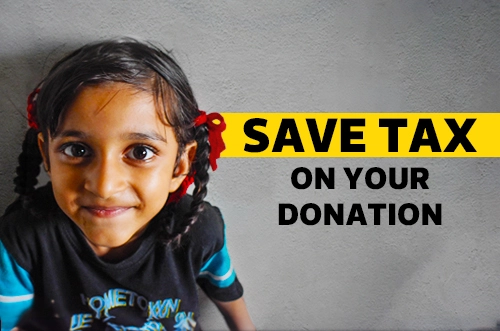
Saving Tax on Donations Under the New Tax Regime
Donating to a cause not only helps those in need but also provides tax benefits. However, with the introduction of the new tax regime, many taxpayers....
Read MoreTax deductions on donations can provide significant financial relief while supporting charitable causes. However, claiming these deductions involves following specific rules and guidelines. Mistakes in the process may lead to denied claims or even penalties. Understanding these common errors and how to avoid them is crucial for ensuring smooth and successful claims.
Donating to charitable organizations is not just a noble act; it is also rewarded by tax benefits in many countries, including India. The government allows individuals to claim deduction under 80G of the Income Tax Act, encouraging more contributions to recognised NGOs. By making a tax donation deduction, donors can support causes that matter while benefiting from reduced tax liabilities.
However, a lack of awareness about rules can cause individuals to miss the benefits. This blog covers why donating to an NGO is impactful and the common mistakes to avoid when claiming tax deductions on donations.

Donating to an NGO contributes to social causes and creates a ripple effect of positive change in communities. It also allows taxpayers to make a difference while enjoying tax benefits. Here are some reasons to donate to an NGO:
Tax Benefits: Contributions made to registered organizations under Section 80G of the Income Tax Act are eligible for tax deductions. The percentage of the deduction depends on the organization's certification. Donations to CRY India qualify for a 50% tax exemption, allowing you to contribute to a meaningful cause while enjoying tax benefits.
When claiming tax deductions on charity donations, avoiding common pitfalls is essential. Below are the most frequent mistakes donors make and tips on how to steer clear of them:
How to Avoid:
Verify the NGO’s registration status before donating. Recognised organisations typically provide an 80G certificate upon request.
How to Avoid:
Always collect and preserve charity donation receipts that mention the following:
Donors often overestimate the monetary value of non-cash contributions, such as clothes or food, which can lead to discrepancies in tax assessments.
How to Avoid:
Contributions such as clothing, food, or medicines are typically not eligible for tax deductions under Section 80G of the Income Tax Act. Tax benefits apply only to monetary donations made through recognised methods, such as cheques, bank transfers, or digital payments.
The Income Tax Act limits the maximum deduction a donor can claim. Exceeding these limits results in disallowed claims.
How to Avoid:
Check the limits for charitable deductions based on your income slab. Ensure the claimed amount adheres to the prescribed cap.
Under Section 80G, tax deductions only apply when deductions are itemised. Itemising involves listing all your eligible expenses, including donations, when filing your taxes. Many individuals overlook this requirement, claiming standard deductions instead.
How to Avoid:
If claiming deductions on donations, opt for itemised deductions during tax filing.
Donations made after the financial year cutoff date (31st March) are ineligible for deductions in that financial year.
How to Avoid:
Plan your charitable contributions well before the financial year ends to ensure they are eligible for deductions.
Fraudulent organisations often pose as NGOs to collect funds that are not eligible for tax benefits.
How to Avoid:
Verify the legitimacy of the NGO by:
Donations exceeding the annual deduction limit can be carried forward to the next tax year (Source: IRS, 2024). Failing to report these carryovers results in lost deductions.
How to Avoid:
Maintain detailed records of excess donations and ensure they are reported in subsequent years’ tax filings.
ALSO READ: How To Save Tax By Donating To NGO?
Donating assets like property or shares involves special tax rules. Misinterpretation can result in errors during claims.
How to Avoid:
Also Read: Stem Education
Claiming tax deductions on donations requires attention to detail and adherence to rules. By avoiding common mistakes, donors can maximise their tax benefits while supporting causes they care about.
Recognised NGO organisations like CRY India ensure donations make a real difference in children’s lives while enabling donors to claim eligible deductions. For example, donating ₹10,000 to CRY India offers a 50% deduction and allows a tax benefit of ₹5,000.
Making informed contributions and maintaining proper documentation simplifies tax filing and enhances the impact of your charitable donations.
The amount of tax-free donations depends on the NGO’s certification. Donations made to CRY India are eligible for a 50% tax deduction under Section 80G of the Income Tax Act. While contributing to this meaningful cause, donors can claim tax benefits, provided the total deduction does not exceed 10% of their adjusted gross total income.
Tax deductions on donations in India are governed by Section 80G of the Income Tax Act. To qualify: